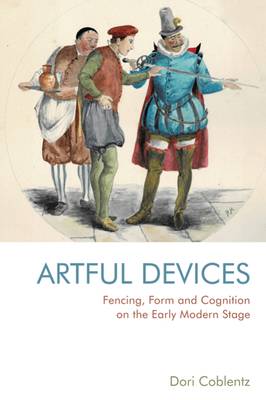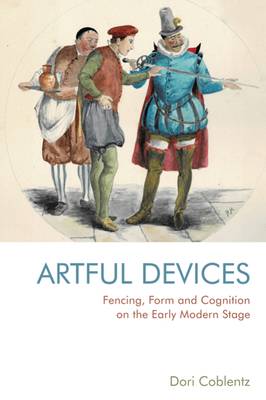
- Retrait gratuit dans votre magasin Club
- 7.000.000 titres dans notre catalogue
- Payer en toute sécurité
- Toujours un magasin près de chez vous
- Retrait gratuit dans votre magasin Club
- 7.000.0000 titres dans notre catalogue
- Payer en toute sécurité
- Toujours un magasin près de chez vous
Fencing, Form and Cognition on the Early Modern Stage
Artful Devices
Dori Coblentz
Livre broché | Anglais
40,45 €
+ 80 points
Format
Description
Fencing, Form and Cognition on the Early Modern Stage reveals an underexplored archive of Italian, English and German fencing texts, which were designed explicitly to teach tempo and judgement. This intervention in Shakespeare and Jonson scholarship provides critical new insights into the plots, pacing and characterisation of drama and attends to the ethical and pedagogical work displayed and accomplished by fencing and dramatic devices. It yields a robust theory of active waiting and brings the imbrications of appropriate timing and ethical decision-making to the fore.
Spécifications
Parties prenantes
- Auteur(s) :
- Editeur:
Contenu
- Nombre de pages :
- 200
- Langue:
- Anglais
Caractéristiques
- EAN:
- 9781474482271
- Date de parution :
- 17-07-23
- Format:
- Livre broché
- Format numérique:
- Trade paperback (VS)
- Dimensions :
- 156 mm x 234 mm
- Poids :
- 285 g

Les avis
Nous publions uniquement les avis qui respectent les conditions requises. Consultez nos conditions pour les avis.






